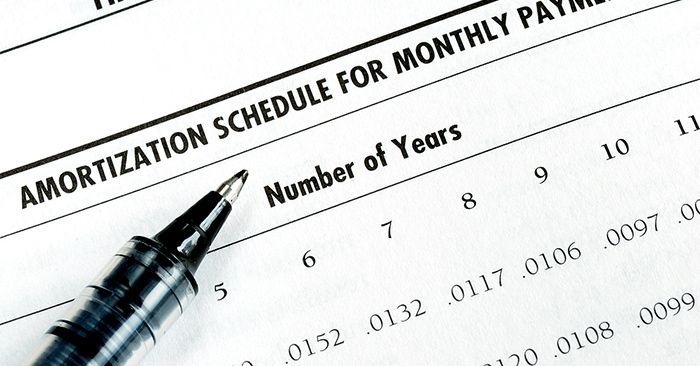How Online Rent Payments Benefit Property Managers & Residents

by: Elizabeth Millar and Brittany Benz
Online rent payments aren’t just convenient, they’re also mutually beneficial for your residents and your business. If you’re still collecting paper rent checks and manually entering bank data, then now is the time to implement a paperless system. Here are ten ways that online rent payments benefit both you and your residents:
#1 Saves Time & Money
As a property manager, you might be wasting lots of time and money every month manually collecting rent, preparing deposit slips, and making trips to the bank to deposit funds. Once a check clears, you spend more time manually posting receipts, and updating resident records.
You can save a lot of time and reduce operating expenses by letting your residents pay their rent online. For instance, with a cloud-based payment solution, residents can instantly pay their rent via eCheck, debit card, credit card, or cash or money order at 7-11 or CVS, where the funds are directly handled entirely online.
Since implementing an online payment system, Bryan Hanes and his team at Hanes Properties have been able to streamline their workflows and drive efficiency, “Our property managers have quickly and easily grasped AppFolio and love all of the online rental payment options. This saves management a ton of paperwork and cuts rent week workload by at least 50% compared to the days when online rental payments were not available.”
#2 Eliminates Error-Prone, Manual Auditing & Editing
Accounting errors can be costly. Online rent payment services prevent the most common accounting errors property managers face daily with paper-based record keeping systems. Digital payments eliminate double posting, as well as failing to post a payment. Online payment processing also prevents data entry errors such as transposing numbers (entering 43 instead of 34) and improperly coding transactions, which can create inaccuracies in the balance sheet and other financial statements when category totals are transferred. A paperless system minimizes common errors—saving your organization time, money, and frustration, while boosting overall productivity and efficiency.
#3 Protects Resident Privacy & Identity
A well-designed property management system has security baked into every step of the customer engagement process, including online payment portals. With a payment portal that protects both in-transit and data at rest, residents can pay rent online without worrying about identity theft, and property managers can have confidence that their data is shielded from unauthorized views.
#4 Allows You to Make More Informed Decisions
Accurate records are essential for operating a successful business. Digital transactions are 100% accurate and provide an efficient path for sharing rent payment histories with credit bureaus and need-to-know external partners. Back office data also allows your teams to identify trends, such as late payment frequency, non-rent assessments and payment type preferences that may change over time.
Having real-time analytics built within your technology platform enables you and your team to make better business decisions. It also encourages owners to accept monthly disbursements and pay assessments online, so your team can have a clearer, more complete snapshot of your organization’s financial health.
#5 Streamlines Communication & Transparency
Paying rent online via a fully integrated system allows residents to access payment history, review fees, and assessments, and modify payment choices 24/7. From the business side, integration enables you to streamline communication with automated communication features, such as text and email alerts when rent is due, and one-time add-ons payable through the portal, regardless of the portfolio mix you manage.
#6 Promotes Accountability
When rent payments are made by mail, drop box, or in-person, it’s harder to keep track of who has paid and when payments were submitted. As a result, it’s more difficult to hold residents accountable and protect your business. With an online rental payment system, you have a digital paper trail where you can instantly check to verify if and when a payment was made, simplifying the dispute resolution process.
#7 Gives Residents More Flexibility
The more ways to pay you provide, the more likely residents will adopt online payments faster, and the better chance you have of getting your rent payments on-time. An online payment system that offers multiple options, such as eCheck (ACH), credit cards, debit cards, electronic cash/money orders, and bank drafts can provide residents with the flexibility and support they need.
Along with offering multiple ways to pay, you can also offer flexible payment plans. For instance, with AppFolio you can set up a payment plan to convert existing charges into a series of payments, providing relief for your residents, while maintaining visibility into the amounts and timing of repayments under the agreement.
#8 Boosts Efficiency with Automated Payments
Your residents are used to carrying out most of their monthly tasks—such as paying their credit card bills—quickly and efficiently online, and their rent is no exception. In addition, many are probably already accustomed to using automatic bill pay systems that enable them to pay all of their bills without having to manually enter the same information each month.
Consider implementing a digital solution that offers automatic rent payments. By enrolling, your residents will not only save time, but your team members can have the reassurance that rents will be paid on-time and in full. Don’t forget to educate your residents about the advantages of paying their rent online and setting up recurring payments. In addition, you should encourage prospects to submit the initial application fee online to promote early online payment adoption.
#9 Improves Resident Satisfaction
According to a recent renter preferences survey by AppFolio, 86% of respondents said it was important for them to be able to pay rent using a mobile device, and 26.75% said they would not rent, or would move out if their property manager did not offer mobile or online tools. That being said, by offering mobile tools, such as online rent payments you can increase resident satisfaction, boost resident retention, and attract more prospects.
#10 Increases Online Portal Adoption
With online rent payments you can also increase the likelihood your residents will use other features within your online portal—such as online maintenance requests and lease renewals—further streamlining processes and increasing satisfaction. The more features your residents adopt, the more time your team will save, and the greater the return you’ll see on your technology investment.
For most renters, the ability to pay rent online is not only preferred, but expected. By providing your residents with modern ways to pay, you’ll be able to enhance your customer experience, boost efficiency, eliminate errors, save money, and give your team more time to focus on growing your business.
Share this post




